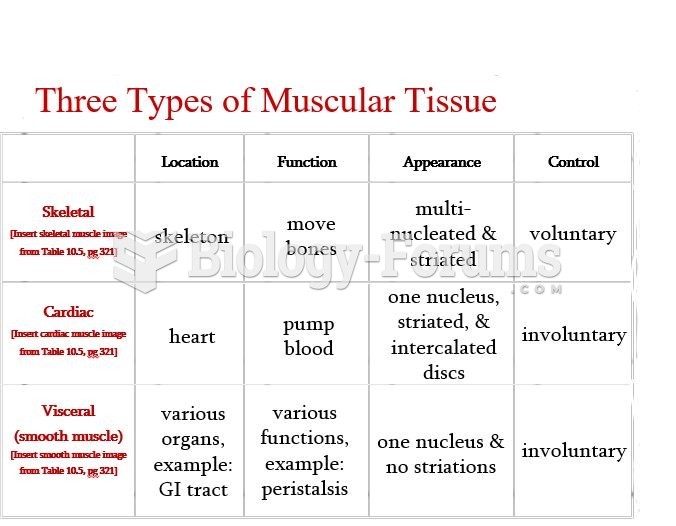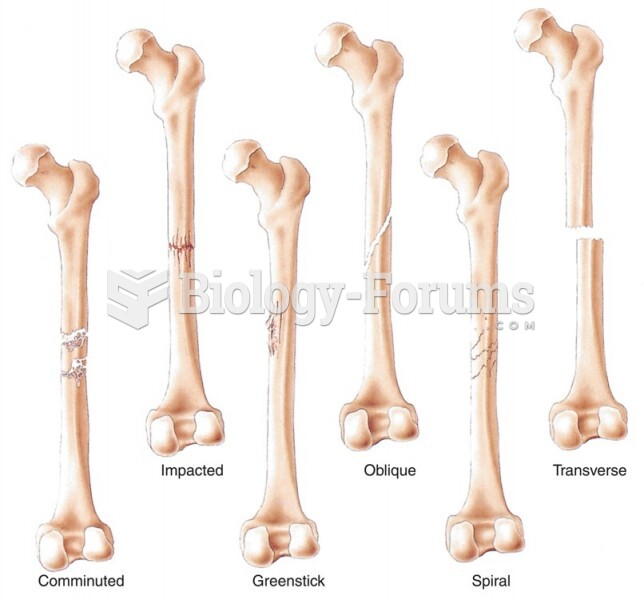|
|
|
The toxic levels for lithium carbonate are close to the therapeutic levels. Signs of toxicity include fine hand tremor, polyuria, mild thirst, nausea, general discomfort, diarrhea, vomiting, drowsiness, muscular weakness, lack of coordination, ataxia, giddiness, tinnitus, and blurred vision.
Hyperthyroidism leads to an increased rate of metabolism and affects about 1% of women but only 0.1% of men. For most people, this increased metabolic rate causes the thyroid gland to become enlarged (known as a goiter).
About 100 new prescription or over-the-counter drugs come into the U.S. market every year.
The Romans did not use numerals to indicate fractions but instead used words to indicate parts of a whole.
Nearly 31 million adults in America have a total cholesterol level that is more than 240 mg per dL.







